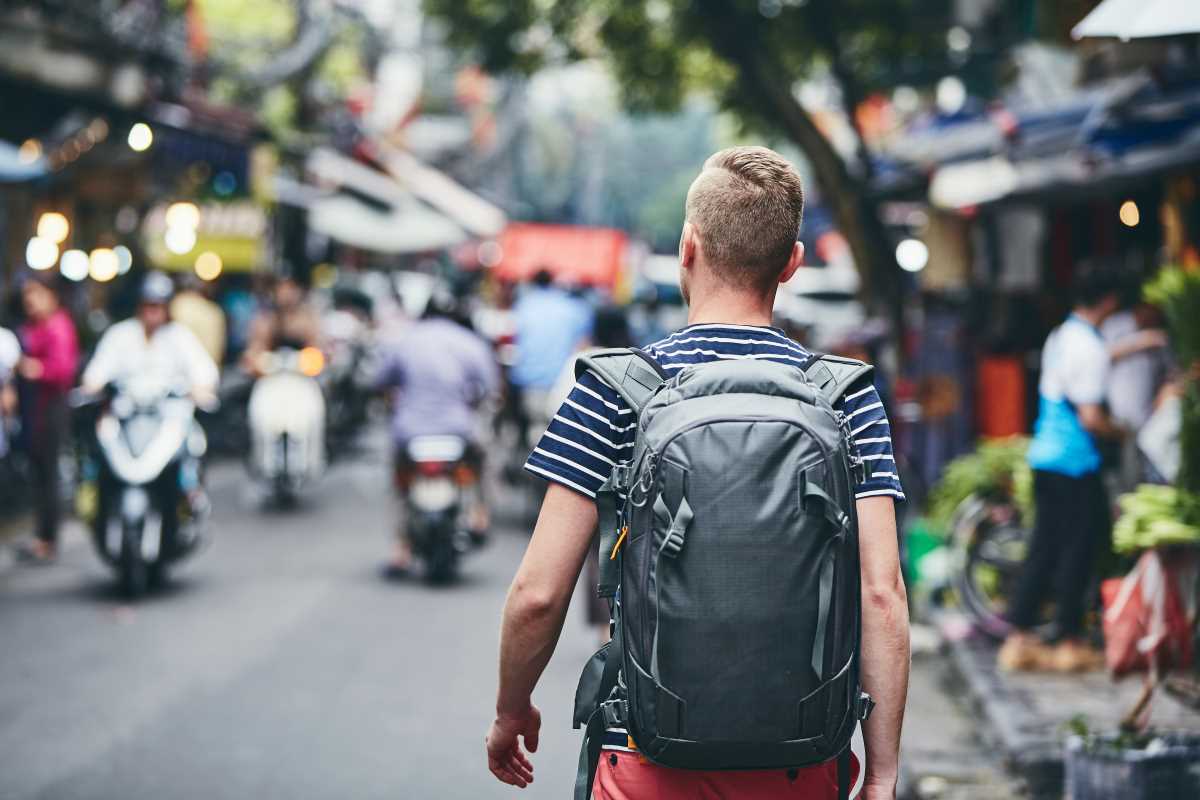Imagine this: your dream vacation is organized down to the minute. Flights, hotels, activities, and more are all planned. Then, out of nowhere, things go haywire. Your flight gets canceled, or you lose your luggage. Worse, you end up in a hospital far from home. These scenarios are exactly why travel insurance exists—to save the day when the unexpected happens.
To help you see just how vital travel insurance can be, here are seven real-world situations where it can truly be a lifesaver. Whether you’re a frequent flyer or an occasional traveler, these examples might just change the way you prepare for your trips.
1. Medical Emergencies Abroad
You’re hiking up a breathtaking mountain trail in Peru when you lose your footing and sprain your ankle. A quick X-ray and treatment at a local clinic later, you’re handed a shocking bill. Without travel insurance, you would need to pay that full amount out of pocket.
Medical emergencies are the most common reason travelers end up using insurance. From sudden illnesses to injuries, healthcare abroad can be expensive—even in countries with relatively affordable medical systems. Worse, many health insurance policies don’t extend beyond your home country.
Actionable Tip: Look for a travel insurance plan with robust emergency medical coverage. Some policies even include travel for accompanying family members or medical evacuation if the situation is severe.
2. Trip Cancellations or Interruptions
You book a non-refundable, two-week trip to Italy, complete with vineyard tours and boutique stays. Days before departure, a sudden family emergency forces you to cancel. Without travel insurance, you’d lose the money you spent on flights, hotels, and activities.
Trip cancellation or interruption coverage can reimburse you for prepaid, non-refundable expenses if unforeseen events (like illness, a death in the family, or extreme weather) derail your plans.
Example: When hurricanes disrupt air travel in the U.S. during the summer months, many insured travelers are compensated for cancellations or extended stays.
Actionable Tip: Always check the reasons for cancellation covered under your policy. For maximum flexibility, consider adding cancel-for-any-reason (CFAR) coverage, which lets you cancel your plans for nearly any reason and still get reimbursed.
3. Lost or Delayed Luggage
You land in Tokyo, excited to explore its neon streets, only to discover that your suitcase decided to take a detour to another country. Worse, it contains essentials you need for your first few days.
Lost or delayed luggage is a frequent travel woe, and replacing missing items can quickly eat into your budget. With travel insurance, you can get reimbursed for the cost of replacing necessities like clothes and toiletries, easing the inconvenience.
Pro Tip: Some policies even offer financial compensation for baggage that’s delayed (instead of completely lost) for over 12–24 hours.
Actionable Tip: When booking your policy, check for baggage coverage limits. Keep receipts for any emergency purchases made while waiting for your luggage.
4. Natural Disasters
You’ve been dreaming about that luxurious beach vacation to the Caribbean. But days before your departure, a hurricane hits, forcing you to cancel the trip. Or worse, you’re already there when the storm hits, leaving you stranded or requiring immediate evacuation.
Natural disasters are unpredictable and can disrupt travel plans in an instant. Many travel insurance policies cover cancellations due to extreme weather, or evacuation and accommodation expenses if you’re caught in the middle of a disaster.
Example: When volcanic ash clouds disrupted flights across Europe in 2010, many travelers faced unexpected extra costs. Insured individuals were able to claim reimbursement for canceled flights and extra lodging.
Actionable Tip: Make sure your policy includes coverage for natural disasters, especially if you’re traveling during storm or monsoon seasons. Check evacuation terms thoroughly.
5. Travel Delays
Picture this scenario: your connecting flight is delayed due to mechanical trouble, and you miss the next leg of your trip. Now you’re stuck at an airport for eight hours with no hotel, no food, and no clear plan in place.
Travel delay insurance reimburses the costs associated with these unexpected disruptions, such as meals, transportation, and accommodation. It’s particularly helpful if you’re on a tight schedule or traveling with kids who really don’t want to live in an airport terminal for the day.
Example: Long flight delays during holiday travel are notorious for wrecking plans. With a good insurance policy, you can take care of yourself instead of worrying about every dollar spent on snacks or lodging.
Actionable Tip: Track your purchases during a delay, and keep receipts to make filing your claim quick and simple.
6. Emergency Evacuation Costs
Adrenaline junkies, take note! Whether you’re zip-lining in Costa Rica or scuba diving in the Maldives, accidents can happen. If you find yourself injured in a remote location, medical evacuation might be required to transport you to the nearest hospital or even back home. These services can cost tens of thousands of dollars if you’re uninsured.
Example: A traveler in the Himalayas who suffers altitude sickness may require a helicopter evacuation. Without insurance, the six-figure bill for this rescue could become their financial nightmare.
Actionable Tip: Opt for policies that include both medical and evacuation coverage if you’re planning adventures in isolated or high-risk areas.
7. Fraud or Theft While Traveling
Imagine exploring a bustling market abroad when you realize someone’s pickpocketed your wallet. Your credit cards, cash, and ID are all gone. It’s not just frustrating, but a real threat to your financial safety while traveling.
Travel insurance can help you recover financially if your belongings are stolen. Many policies reimburse lost cash (up to a limit) and assist with replacing crucial documents like passports.
Example: When mugging incidents occur in popular tourist areas like Barcelona or Bangkok, travel insurance eases the recovery process by offsetting financial losses.
Actionable Tip: Keep copies of essential documents (like your passport and driver’s license) in cloud storage for easy retrieval. And check if your policy includes assistance services that guide you through replacing stolen IDs.
Before your next getaway, take the time to evaluate your travel needs and risks. Review different policies carefully, compare your options, and don’t hesitate to ask questions. With the right coverage in place, you’ll be ready to face anything that comes your way.
 (Image via
(Image via





